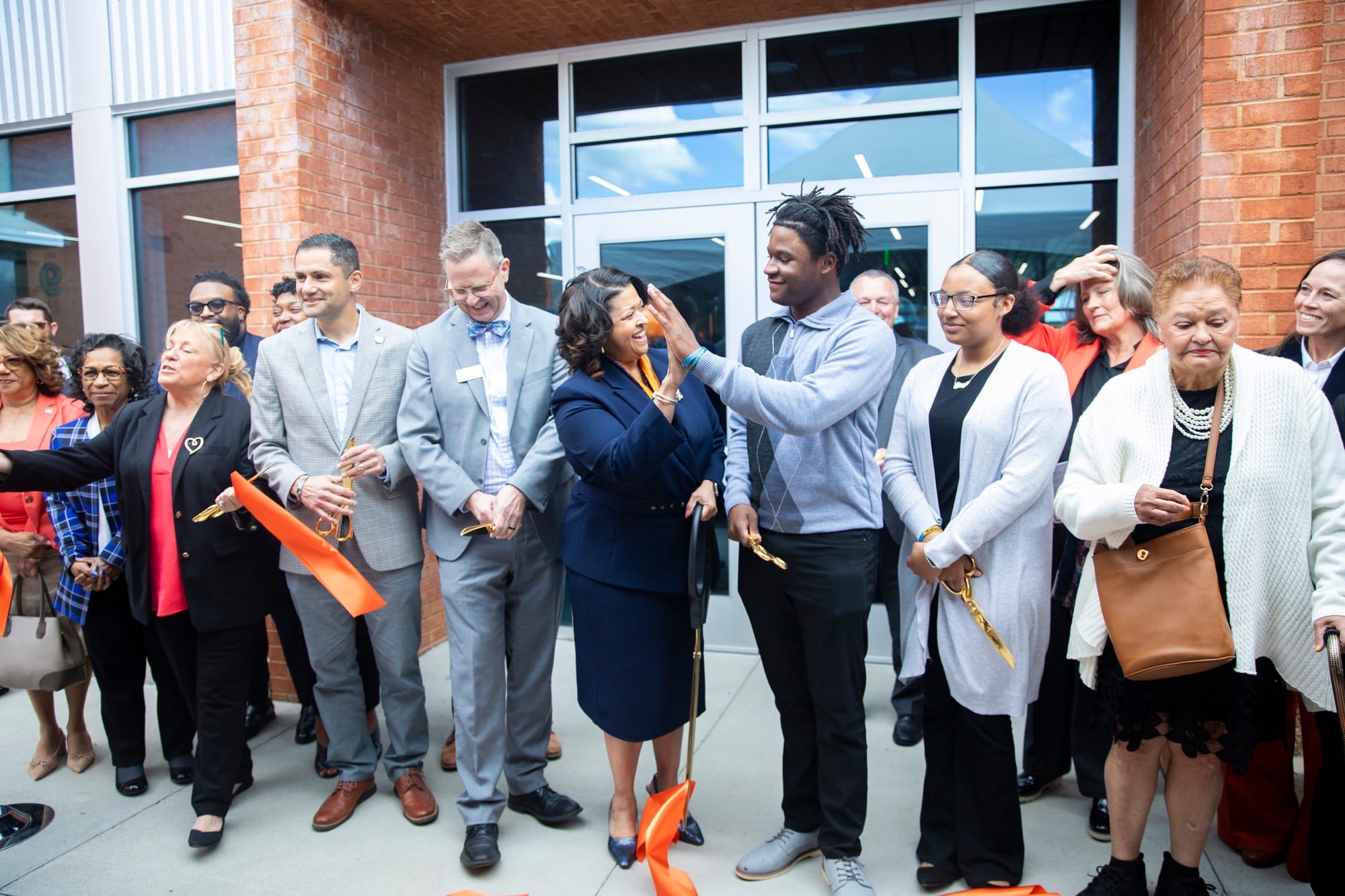Roanoke Changes School Funding Policy, Which District Fears Could Cost It Millions
City Council said the change will allow for flexibility in spending taxpayer money, while school officials decried it as harmful.

Roanoke’s school district will no longer be guaranteed 40 percent of actual local tax money.
While City Council continues to budget 40 cents of every local tax dollar for the schools, any additional revenue at the end of fiscal years won’t automatically get that same treatment, city leaders decided Monday. Instead, any money over what’s budgeted “will be allocated in a manner deemed most appropriate by City Council,” according to the measure.
Council voted 5-1 on updating the funding formula, which was put in place in 2011 to avoid political fights over funding between the local government and school board.
Councilman Luke Priddy voted in the minority, and Councilwoman Vivian Sanchez-Jones recused herself because she works for the school district.
“What we are trying to do is make sure that there's some balance,” Councilwoman Trish White-Boyd said, “so that we can build those bridges that we need, so that we can build that fire station that we put on hold this year and that library that we put on hold this year, and those employees who are still waiting to be compensated the way they should be as city employees.”
The change won’t take effect until the spring of 2026, according to Vice Mayor Joe Cobb.
“My understanding of this is it's a shift in the process in terms of how we reach a decision,” Cobb said. “It's not necessarily saying the schools are not going to get 40 percent. It's asking them to present their priorities to us just like we get priorities presented.”
City leaders note that organizations can’t plan based on money that may or may not come in.
“We don’t budget assuming there’s going to be a surplus,” City Manager Bob Cowell said at a meeting last week. “Neither does the school.”
School officials, meanwhile, have argued that they have relied on the full 40 percent of actual revenues — not just those initially budgeted — for building upgrades and summer school programming, among other areas. Finance staff start to get a firmer indication in January whether there will be additional funds for the city’s fiscal year, which ends in June.
Actual dollars never exactly match what local governments project in their budgets.
In the last 12 fiscal years, revenues came in under budget three times, which led the school district to return about $2.6 million to the city. In nine years of surpluses, extra money for the schools averaged $2.4 million annually, ranging from about $785,000 in 2013 to nearly $6.5 million last year — which was more than double the previously highest surplus, from 2022.
The latest year’s surplus, finalized Monday, totaled an extra $5.4 million for the schools.
Roanoke school leaders in recent months have gone on the offensive, publishing op-eds in local publications defending the funding formula and their fiscal decision-making.
Superintendent Verletta White and school board members Mark Cathey and Franny Apel attended Monday’s Council meeting and expressed displeasure after the vote.
“This one’s much more of a gut punch,” Cathey said of the latest revision to the funding formula, which Council seeks to update every three years. “We think that this is going to cause more conflict, more politicization, and it's going to make it difficult on our kids in the city of Roanoke.”
Cathey rejected any characterization that funding earmarked for schools has hampered the city’s ability to compensate its employees well.
“To say that we're taking money out of the mouths of firefighters, I think is disingenuous,” he said.
White said the school district has used the funding surplus on pay raises for teachers and on recent physical upgrades to improve school safety.
“The surplus is not extra. The surplus is part of the core 40 percent,” she said. “When that is jeopardized, then those promises [we make to the community] are jeopardized.”
Council members say the school district is in good financial shape and that the city has other urgent needs.
White-Boyd has noted the school district has $44 million in cash reserves, and this year Council will be allocating the schools $108 million in local taxes — more than for police, fire and social services combined. Surplus funds should be used for one-time expenses, city officials say, so any change to that would not impact teacher salaries or other year-over-year costs.
Before Council approved the change, Priddy proposed tabling the vote until December. That failed on a 4-2 vote, with support from Councilwoman Stephanie Moon Reynolds.
Moon Reynolds proposed Council first confer with former community leaders who crafted the original 40-percent formula to get their historical perspective.
Mayor Sherman Lea rejected that idea as not appropriate to deciding where to spend taxpayer money.
“I don’t think we need former school board members and former City Council members to come back and tell us where we are,” Lea said. “This is a different day. The environment is different. We’ve got things we need to consider that we didn’t have to consider back then.”

